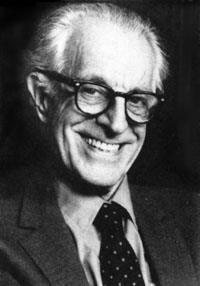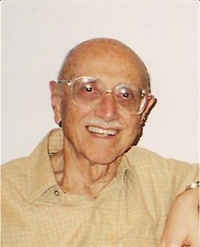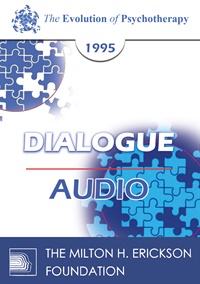EP95 Dialogue 06 - Symptom-Based Approaches or Growth Facilitation - Albert Ellis, PhD; Judd Marmor, MD
- Average Rating:
- Not yet rated
- Topic Areas:
- Dialogues | Psychotherapy
- Categories:
- Evolution of Psychotherapy | Evolution of Psychotherapy 1995
- Faculty:
- Albert Ellis, PhD | Judd Marmor
- Duration:
- 1 Hour 05 Minutes
- Format:
- Audio Only
- Original Program Date:
- Dec 15, 1995
- License:
- Never Expires.
Description
Description:
Educational Objectives:
- Given a topic, to become aware of the differing approaches to psychotherapy, and to identify the strengths and weaknesses in each approach.
*Sessions may be edited for content and to preserve confidentiality*
Credits
Faculty

Albert Ellis, PhD Related Seminars and Products
Albert Ellis, PhD, was an American psychologist who in 1955 developed Rational Emotive Behavior Therapy (REBT). He held M.A. and Ph.D. degrees in clinical psychology from Columbia University and American Board of Professional Psychology (ABPP). He also founded and was the President of the New York City-based Albert Ellis Institute for decades.
He is generally considered to be one of the originators of the cognitive revolutionary paradigm shift in psychotherapy and one of the founders of cognitive-behavioral therapies.[2]
Based on a 1982 professional survey of US and Canadian psychologists, he was considered as the second most influential psychotherapist in history (Carl Rogers ranked first in the survey; Sigmund Freud was ranked third).[3][4] Psychology Today noted, "No individual—not even Freud himself—has had a greater impact on modern psychotherapy."[5]

Judd Marmor Related Seminars and Products
Judd Marmor, MD, was an American psychiatrist known for his role in removing homosexuality from the American Psychiatric Association Diagnostic and Statistical Manual of Mental Disorders. Judd was an adjunct Professor of Psychiatry at the University of California in LA, was Franz Alexander Professor of Psychiatry at the University of Southern California School of Medicine. he has practices medicine for more than 50 years, having graduated from Columbia University College of Physicians and Surgeons in 1933. He is past president of the American Psychiatric Association, American Academy of Psychoanalysis, and The Group for the Advancement of Psychoanalysis, and The Group for the Advancement of Psychiatry. He is recipient of the Bowis Award for Outstanding Achievements in Leadership in the Field of Psychiatry from the American College of Psychiatrists and the Founders Award from the American Psychiatric Association. Dr. Marmor served on the editorial board of 14 journals.He authored five books and co-authored one. He has written or co-written more than 300 scientific papers. Much of his writing has been on psychoanalysis and human sexuality.


